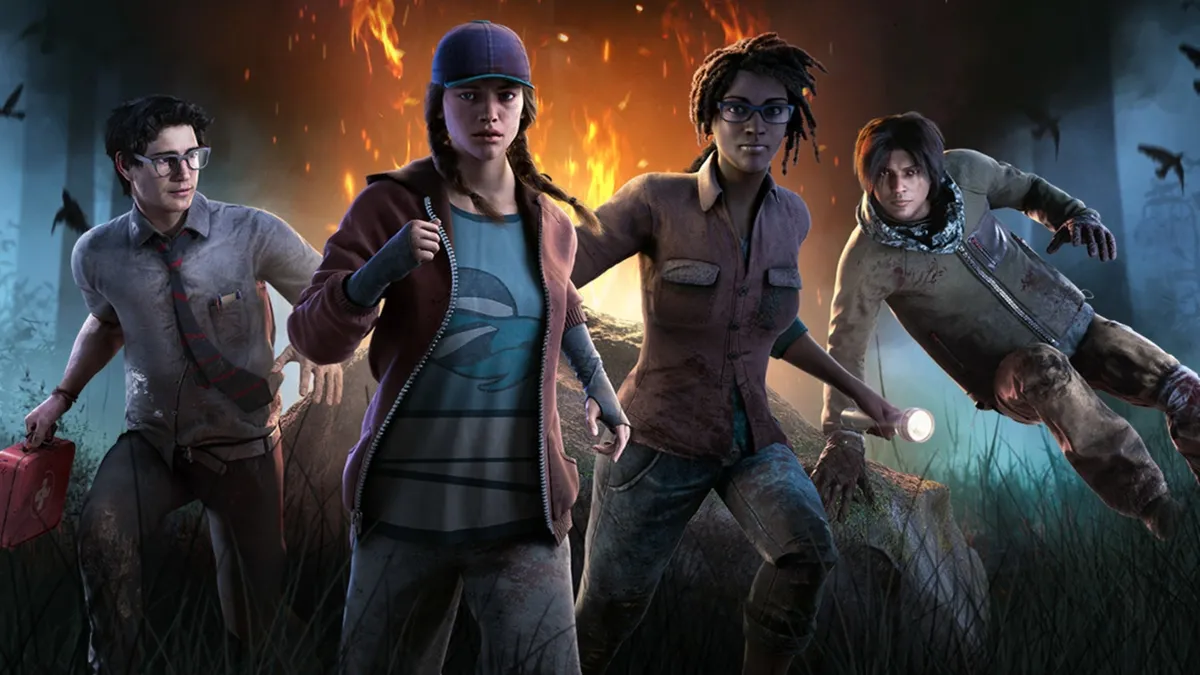It can be easy to mock Kickstarter for the countless duds and disasters that have been funded over the years. However, its importance to the gaming industry cannot be overstated. The crowdfunding platform has opened the doors for developers both big and small to bring their products to the masses, and if it wasn’t for the site, developer Wizard Fu (a.k.a. Nathaniel Weiss) wouldn’t have been able to create their latest project, Songbringer. After a lengthy development cycle, the Zelda-influenced adventure has finally arrived on consoles and PC.
After crash-landing on the mysterious Ekzera, Roq Epimetheos just wants to get back aboard the Songbringer. Although his heart is in the right place, Roq cannot help but worsen his situation when he pulls a mystical sword from the ground. You see, while Ekzera looks normal enough, lurking below it’s surface is an ancient evil that just happen to be awoken by said sword-pulling. While he may have been separated from his crew of like-minded friends, our hero is not entirely alone. Although his human friends may be MIA, Roq still has Jib, his skybot, working alongside him. Jib may be small in size, but his unique scanning abilities and guidance are necessary tools for survival. Roq may not have wanted this burden, but the job of saving the galaxy just fell into his inexperienced hands.
While engaging in parts, I found myself mostly ignoring the story bits of Songbringer. I think it may be a little too fantasy for my tastes, and after a certain point, my eyes just glazed over whenever I reached a cutscene. There’s a sense of weirdness in the game that did capture my attention from time to time, though. Roq’s crew, when you do come across them, are delightfully unperturbed by the chaos unfolding around them. Even Roq himself doesn’t really mind, much to the chagrin of Jib. His personality reminded me of Finn from Adventure Time, and while Jib is no Jake, he is a good foil for the more comedic Roq. So, while I wasn’t captivated by the lore and world of the game, there are moments that at least made it enjoyable.

Besides, I imagine most of the people attracted to Songbringer aren’t coming to it for the lore. Instead, most of the backers of the title were intrigued by the idea of “The Legend of Zelda, but in space.” In fairness, that is an excellent hook. For the uninformed, what this basically means is that the title has the feel of a traditional dungeon crawler, but with some more modern trappings. This includes a good sized open world that can almost fully be explored by Roq and Jib once the adventure begins. If you’re like me, this means you’ll probably get lost more times than you would have liked, but that’s all part of the adventure.
The other big feature of the game, and I suppose of the world of the game itself, is that it is procedurally generated. At the outset of every new game, you can enter a six letter word seed that will generate a unique world. The same seed will always generate the same world, so if you liked a particular design, you can always go back to it. If you wanted to, you could even look for another player’s seed and see if you could complete it faster than they could. It’s an interesting way of approaching the randomly-generated level design framework that has become more prevalent in recent years. I haven’t experienced too much with this, but in the two games I have started, they have both felt surprisingly different from one another.
The core gameplay beat of Songbringer is more in line with your traditional dungeon crawler. In order to complete Roq’s adventure, you’ll need to conquer nine different dungeons, with each of them presenting their own challenges. In my main run, most of them were filled with enemies of all shapes and sizes, with a massive boss waiting at the end. Some of them, though, are more interested in testing your ability to solve simple puzzles. Both styles are fine, and since you can theoretically play through them in any order you want, you can mix it up as you see fit.
It feels weird to say, considering how tough the game can be, but I found Songbringer to be a surprisingly relaxing game to play. I certainly got frustrated with it, sometimes due to the difficulty and sometimes due to my own stupidity, but I never found myself that enraged with the game either. There was just something so relaxing about exploring this technicolor world and stumbling upon its secrets in a cacti-induced haze. It’s a game I could find myself going back to when I’m just looking to unwind after a long day of work.

Besides unleashing an army of “Goat Devils”, ice monsters and ghost demons, the nano-sword is a pretty great weapon. It’s Roq’s main form of offense, although he does gain some other attacks along the way. A top hat can be used to hit enemies from afar, while a bomb can take out a group of foes in a single blast. Eventually, every attack can be augmented with elemental abilities that can be found throughout the game. For example, I upgraded my hat with ice abilities so it could not only freeze enemies, but could also create a walkway over liquid surfaces. I liked that there was nothing tying a weapon and element together, which opens the door for some nice variety in future runs.
While I appreciated the variety of combat options Songbringer has, I didn’t particularly love the swordplay. For the amount of enemies the game can throw at you, the standard sword swing felt a little too sloppy for me. There’s no real variety to it either, so a lot of later encounters boiled down to mashing the attack button as fast as I could. The boss battles do a better job of integrating your abilities into a fight, but they’re only a handful of those in the game. Most of your time will be spent killing the same enemies, in the same locations, in the same style. It can drag a little bit, particularly during the early-portions of the game where your movement is limited.
As I kind of alluded, I really enjoyed the look of Songbringer. It’s retro looking, yes, so if you are sick to death of games that embrace old-school aesthetics, this won’t appeal to you. What it does, though, is utilize color and visual effects in a way that makes this style feel fresh. Whether you are traveling through the woods or exploring a dungeon, strategic splashes of color give the world of Ekzera life. Particular credit has to be given to the weather effects, as fighting off enemies in the midst of a torrential downpour will never cease to amaze. My only concern is that it can sometimes be difficult to see enemies on-screen due to various visual effects that can pop up during a battle. A minor quibble, but one that needs to be pointed out.

I don’t find myself often coming back to the games after I complete them, as there’s just not enough time in the day. However, I’ll be making the exception for Songbringer when I do find myself with some free time. It’s short enough to not overstay its welcome, and the world-generating system used by Wizard Fu should prevent things from getting stale. Despite being heavily influenced by games of the past, the title manages to feel remarkably fresh and original. Nathaniel Weiss has crafted a shimmering, crafty gem that shouldn’t be missed, even if the words “procedurally generated world” scare you.
This review was based on the PlayStation 4 version of the title, which was provided for us.






